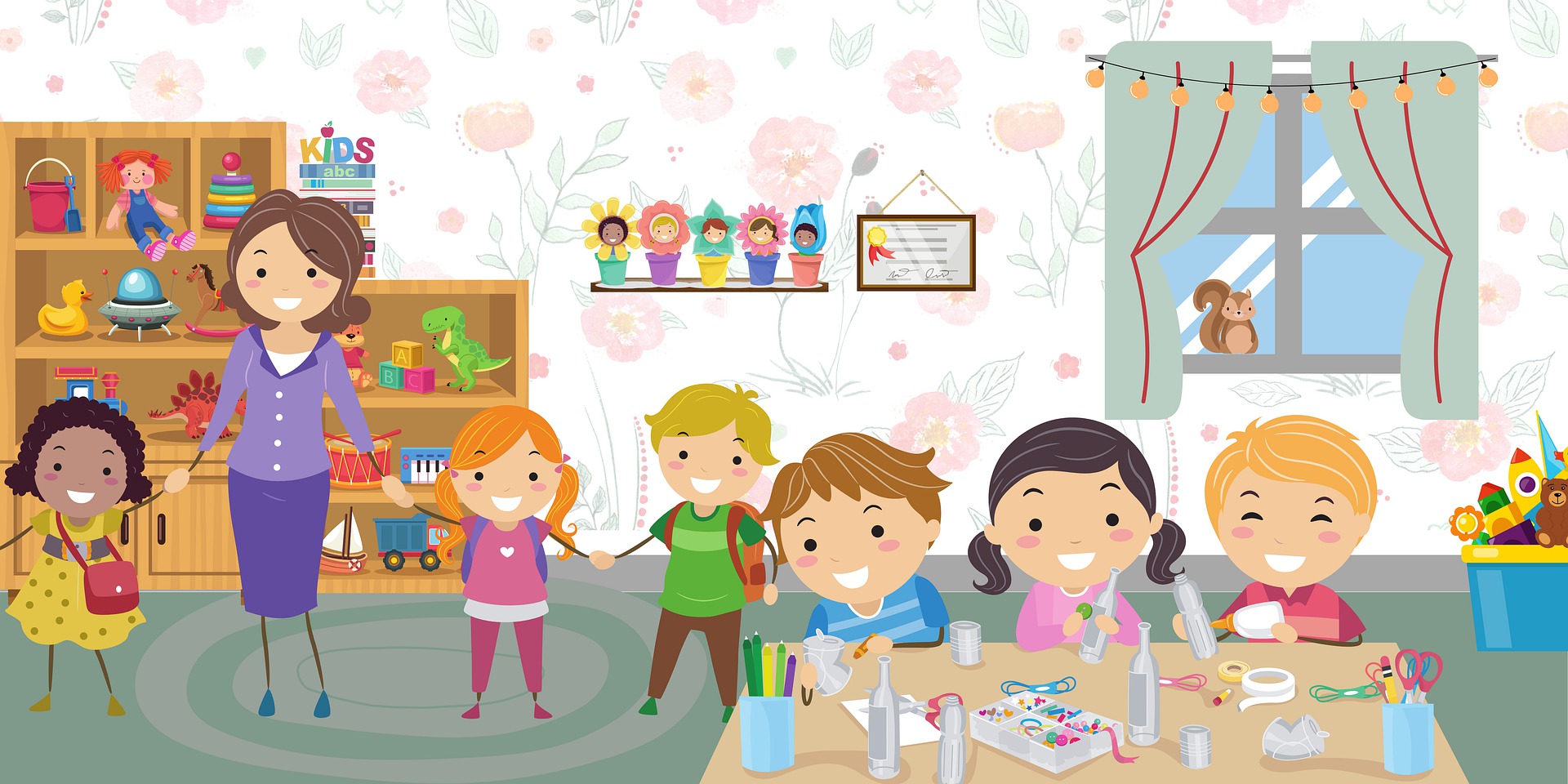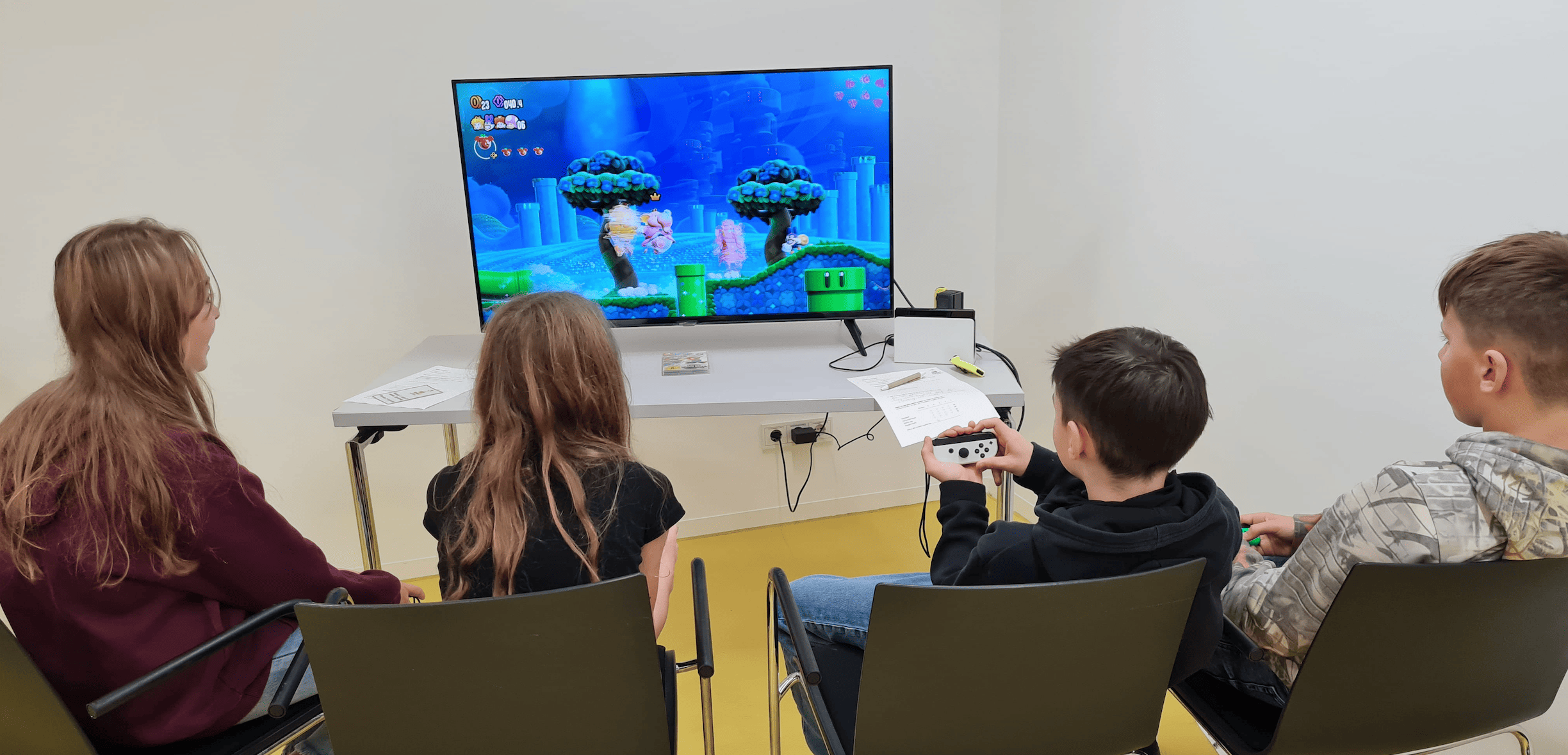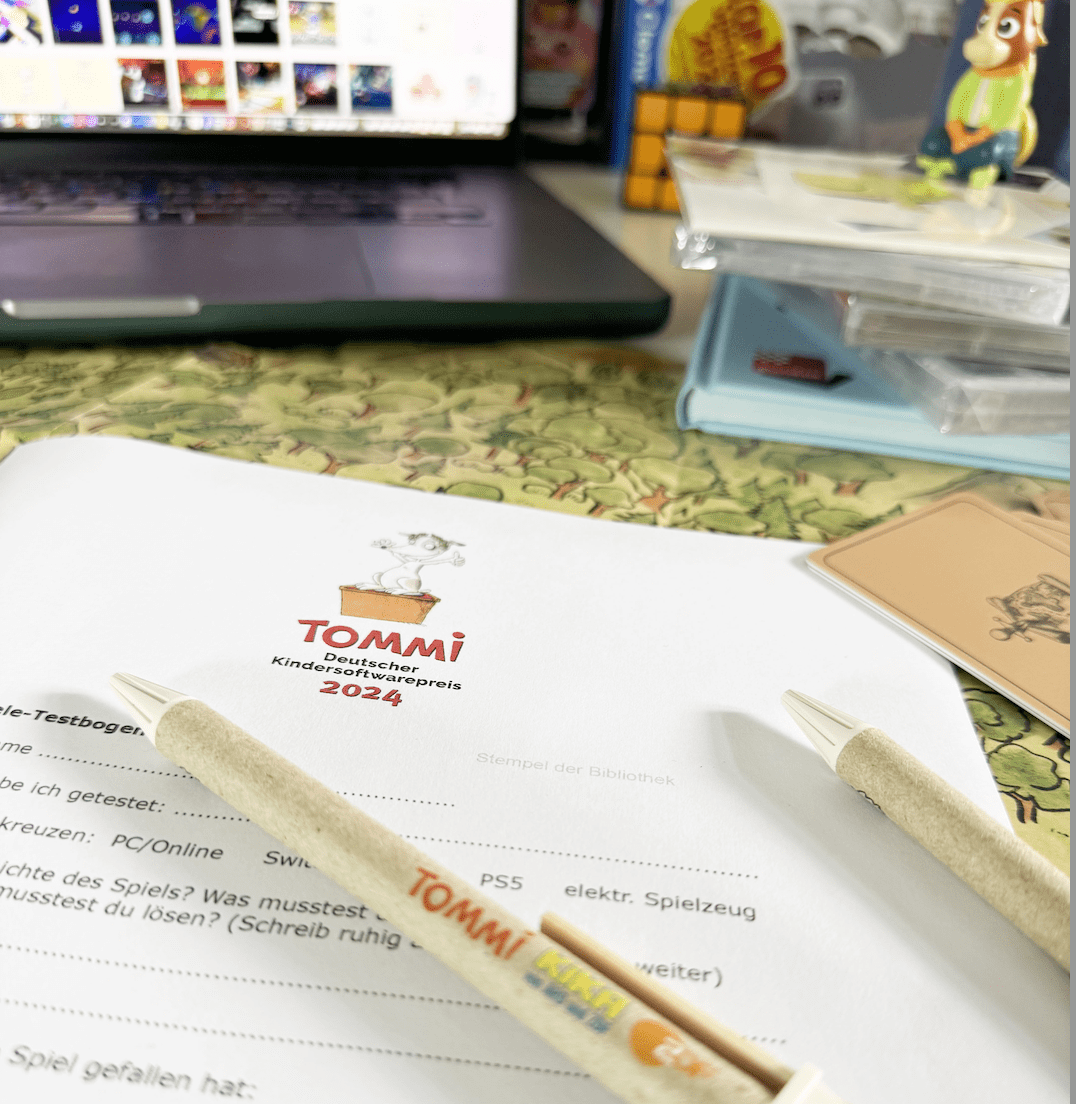Children's Software Prize 2025
The TOMMI experts
First the expert jury, then the children's jury
The TOMMI expert jury consists of renowned journalists, scientists and educators. They review the numerous submissions and select the nominations, which are then made available to the children's jury. In doing so, they ensure that the content is appropriate for the age of the children and young people.
This is the TOMMI expert jury 2024

Thomas Feibel - Chair
"Computer games are the continuation of daydreaming by digital means. Computer games are the only medium in which recipients can "go inside" and influence the course of events. It doesn't always have to be ball games, because with simulation and strategy, amazing expertise is accumulated quite incidentally."

Christoph Drösser - Freelance Journalist in San Francisco
"I like games that you can understand quickly and that are not too complex, but not too simple either. Just the right level to get the player into a "flow"."
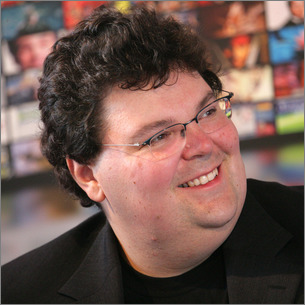
Martin Eisenlauer - Journalist
"Start playing! Don't stop playing! And above all: Play with your children! This is not only fun but also ensures that children learn how to handle games responsibly. Hardly anywhere else is educational behavior as much fun as when you drive Mario Kart with the whole family."

Stephan Freundorfer - Freelance Journalist and Author
"What makes most games fascinating is that you can dive into new worlds that follow their very own rules. And if these rules are designed in such a way that the player understands them intuitively and doesn't feel constrained, then that contributes decisively to the quality of a game."

Andreas Garbe: h1 - Fernsehen aus Hannover e.V.
"Anyone who has played video games like 'What remains of Edith Finch,' 'Batman: Arkham VR,' or 'Transference' will have no doubt that this medium can provide emotionally moving, literary experiences that are on par with books in their impact - rather the opposite."

Christine Geilich - funk
"For me, play is an approach to the world: being open to the unexpected, trying things out, exploring with curiosity, failing and overcoming challenges. It teaches many values that you don't recognize at first glance. And the best thing about it: it's fun. 😊"

Carsten Görig - Free for Der Spiegel
"Don't be afraid of games. They are not evil, but can also be a lot of fun. Especially in a small round with friends. Then a round of 'Mario Kart' is no different than 'Four Wins.' But at the same time, games are not babysitters."
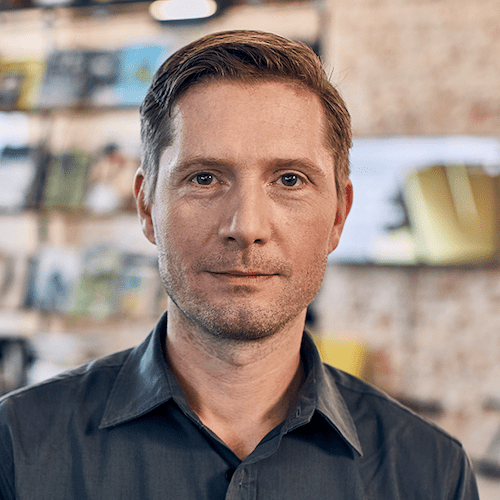
Moses Grohé - Free for GEE Magazine
"Playing should be fun: That applies to electronic toys just as much as to purely digital games. If practical skills are also trained or learning content is taught in the process, this has great potential."

Steffen Haubner - Freelance writer for the Catholic News Agency (KNA)
"Video games are interactive narratives, which means you have the opportunity to immerse yourself in the worlds described in them and experience things that remain closed to you in real life. A good game should be supported narratively as well as playfully by a good idea, to which all elements of the game are subordinate."

Sarah Kälberer - Rocket Beans

Umut Kocak - funk
"It's not always easy to describe what video games mean to you, but for many gamers they are lifelong companions. They let us explore fantastic worlds, look inwards and outwards and, more importantly, they connect players' hearts: Player 2 - Press Start."

Sandra Kügler - Düsseldorf Public Libraries
Libraries create free access to computer and video games for everyone. Combining this with the fact that the target group itself decides which games are the best is the perfect combination. Not just playing games, but thinking about what you're actually playing and why you like it or not - that's library and media education at its best."

Anatol Locker - freelance journalist
"Good games create a flow that makes the player forget time and space. Particularly good games additionally stimulate the emotional world."

Anne Reichenbach - Editorial Office "Team Timster
"Not every child who likes to gamble is a gambling addict. Talk to your children, or no even better: play with your children. Let them get involved in the experiment and be infected by their children's enthusiasm."

Dr. Michael Spehr - Frankfurter Allgemeine Zeitung
"Don't leave the child alone with his or her games, but keep glancing at the monitor or TV. Just play along, ask what's interesting at the moment or what's hot among friends at school. Leave the pedagogical forefinger down sometimes and don't rigorously forbid..."

Fabienne Ulrich - funk

Marco Wedig - Your mirror
"Good video games tell stories, bring people together, and give kids the opportunity to try out different roles. Of course, there are problems with some games: cyber bullying, data protection gaps, cost traps. But we shouldn't demonize games per se, but accept that they are part of children's everyday lives."

Bettina Wegenast - Biblioplay!
"It's like all media: get smart and interested in the games your kids are playing. Watch them play or play along and ask them to suggest a game they think would suit you."
Pedagogical support and jury

Prof. Dr. Stefan Aufenanger - AG Medienpädagogik, Johannes Gutenberg - Universität, Mainz
"Good software for children should be challenging and encouraging, playful and learning at the same time. It should take children seriously in their curiosity and inclination to learn and play. It must be fun and challenging in that sense... "

Prof. Dr. Jan M. Boelmann - Center for Didactic Computer Game Research (www.zfdc.de)
"It takes a lot to accompany your children on their way into a confusing digital world. So be brave and trust that your children can do a lot. But also accompany them in the process: Have open ears for their arguments, for their experiences, for their questions and - this is often underestimated - their answers.

Prof. Dr. Linda Breitlauch - Game Design, Trier University of Applied Sciences
"Our library has been offering game days every six months in a branch for several years, each on a Saturday from 11.00 to 16.00, in this context we also participate in the nationwide action Stadt-Land-Spielt in September of the current year. Furthermore, we have been going to all our daycare centers and after-school programs in our community for 3 years now and playing games there with parents, educators and children of the respective target group."

Thilo Engelhardt, Principal Waldparkschule Heidelberg
"Digital ways of working can support analog processes; help us better structure our operations and eventually democratize the world, provided we always remain critical."

Holger Gutwald-Rondot, Headmaster, Kraichgau-Realschule Sinsheim
"Digital is another tool for obtaining education."

Daniel Heinz - Digital Games at the Fachstelle für Jugendmedienkultur NRW (Office for Youth Media Culture NRW)
"Digital games can provide motivating and interactive spaces for learning and experience. The different forms of games appeal to intellectual and haptic types of learners as well as those who are better at remembering experiences of the visual or auditory kind."

Dr. Lisa König - Center for Didactic Computer Game Research (www.zfdc.de)
"Children and young people can only grow into critical minds if they're given the opportunity to try things out - that's just as true with media as it is with exploring natural phenomena or riding a bike."

Dr. Kathrin Mertes, Project Manager and Media Educator Digitalpakt Schule RLP, Investitions- und Strukturbank Rheinland-Pfalz, Mainz
"There is now a wide range of guidebooks available to parents. But also the exchange with other parents and their experiences with certain games can be enriching. However, it is also important to look for suitable software together with the children and also involve them in decisions."

Prof. Dr. Helmut Meschenmoser - Media Educator Technical University Berlin
We mourn the death of our founding jury member Prof. Dr. Helmut Meschenmoser († 2013)
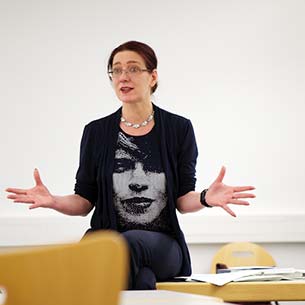
Prof. Frauke Schade - Hamburg University of Applied Sciences | Faculty of Design, Media, Information
"The ability to play is given to all of us. Playing means learning. Digital games can open up creative spaces of experience and promote active, as well as critical, learning."

Linda Scholz - Player Advisor NRW
"I don't share the stigmatization that the medium often receives in society, because I always associate digital games with positive aspects. As with all media and consumer goods, use should of course be moderate."

Prof. Dr. Friederike Siller - Institute for Media Research and Media Education, Cologne University of Applied Sciences
"Kids are great gamers from an early age, and a "digital gaming culture" needs to measure up to this "analog gaming culture" of kids."

Jürgen Sleegers - MediaGamePedagogue - Institute for Media Research and Media Education, Cologne University of Technology
"You have to play games to understand them! Playing along also helps you understand game players and find your own questions and answers. Game recommendations and awards provide a good guide to discovering suitable digital games in the vast software jungle."















